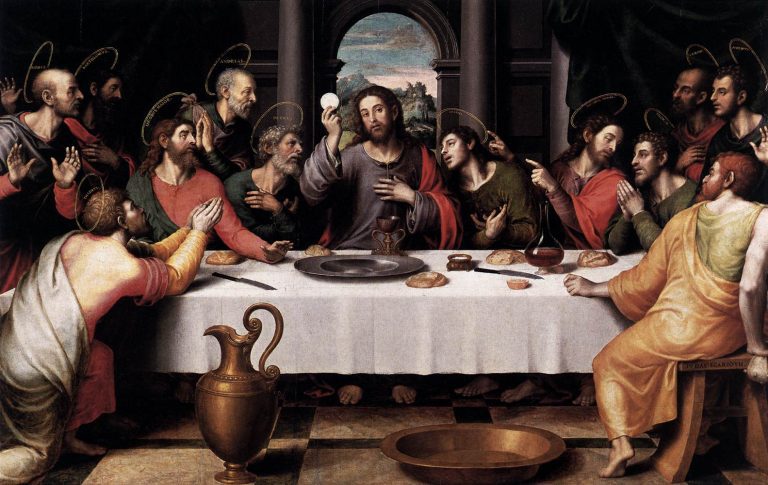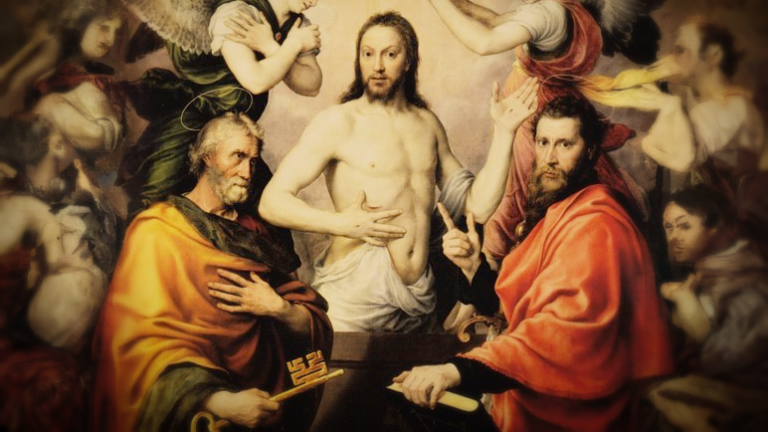All of us are sometimes tempted to say “I am a good person.” The statement’s truth is easily and readily demonstrated by comparing oneself with many of our billions of neighbors.
The person who refrains from lying and stealing seems justified in feeling himself superior to those who give in to such temptations. By comparing himself to others, the occasional murderer can look at the mass murderer, and by comparing, conclude, “I am a good person.” Taken to an extreme, the mass imprisonments, tortures, executions, and nation-looting that have made the Castro brothers two of the wealthiest men in history may be compared with the far more numerous assaults on people and property launched by Stalin. Such a comparison could lead the once-Catholic Fidel to say on his deathbed, “I have no need to confess my sins to a priest. Compared to Stalin, I am a good person. Compared to Mao Tse Tung, I have been a living saint.”
So, we may conclude that believing oneself to be a “good person” may be more than wrong. It can be a great danger to our immortal soul, separating us from the consideration of and belief in the perfect, and, thereby, from salvation, itself.
It’s very, very hard to fight the pleasureable spiritual gravity that pulls our vision downward. It’s hard to renounce the joy it’s easy to find in gazing down upon lesser mortals from our personal Mt. Olympus, focusing comfortably on the flaws of those whom we, “good people”, have reasonably concluded to be our moral inferiors because of the very faults we so enjoy analyzing and talking about. The joy in our self, if left alone, tends to grow as the imperfections of others become ever clearer. It grows more rapidly as we become more skilled at finding and describing our neighbors’ shortcomings. Soon, we may find ourselves to be absolutely wallowing in the self-congratulation that accompanies the knowledge “I am better than they.”
God, with His pesky insistence that “You should love your neighbor as yourself.”, intrudes on that joy. It is natural for many of us to minimize belief in Him for no other reason than that it takes away the cherished enjoyment we find in feeling, even proving, ourselves to be superior to others. We may enjoy looking down on others so much that we don’t want to more fully understand that there is a God Whom we should obey. But, we cannot sanely deny the possibility that He does exist, and that His Nature and the operating instructions He’s provided have been described with reasonable accuracy by His more traditional believers.
If we grow in belief, we realize that He is not pleased when we use the gifts He has given us, His seemingly cleverer children, to belittle and make fun of of our equally beloved brothers and sisters to whom He has apportioned different gifts.
We can read and hear what He has said on the subjects of pride and vanity: He tells us that we should love Him and our neighbors. He has sent us that message consistently, for several thousand years. Billions have heard it, and many have come to realize that it is He, and He alone, before Whom every head must bow and every knee must bend. As we grow in understanding, we obey His clear call to replace our love of self for that of God and the neighbors He has so kindly provided for us.
First, that message came from His prophets. It was delivered, again, in no uncertain terms by His Son. He died delivering it when He came among us and was painfully scourged, tortured, and killed by people, all of whom, if asked, would have said, “I am a good person.”
It may not be unreasonable to conclude that there are punishments beyond reserved for those who most strongly deny their own need for divine mercy. The vanity of such minds and souls may have so thoroughly replaced the fear of God with the thought that “I am such a good person that I shall judge myself.” that it is impossible for the gentle, saving gifts of wisdom and mercy to get through.








